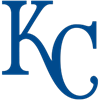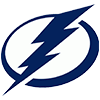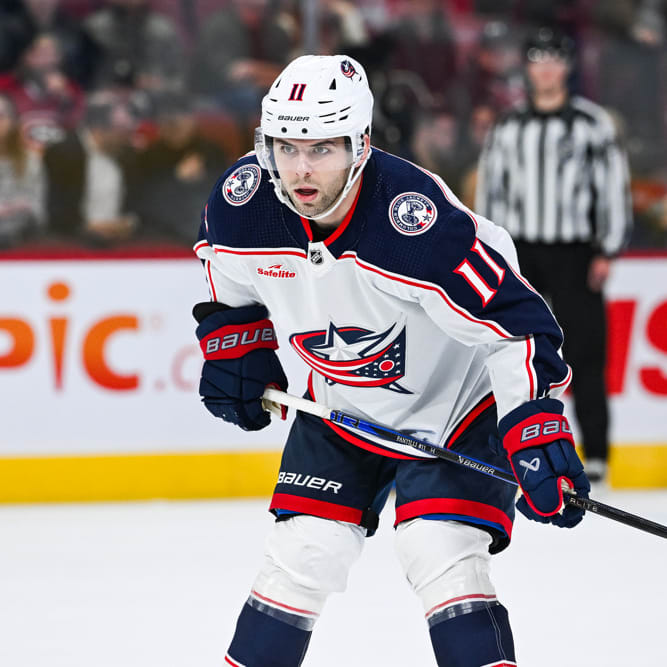While the current season remains on hiatus, there is no time like the present to start looking ahead to next year. Over the next several weeks, we'll take a look at the cap situation for all 31 NHL clubs, including restricted free agents, unrestricted free agents and even potential buyouts. Then, we'll play a little armchair General Manager by providing our recommendations for how we would approach the upcoming 2020-21 campaign if we were running the club.
In our most recent Twitter poll, the  Nashville Predators brought in 50 percent of the vote and will start Week 6 of our series.
Nashville Predators brought in 50 percent of the vote and will start Week 6 of our series.
2020-21 Cap Situation
The Predators currently have 10 forwards, six defensemen and two goaltenders under contract for next season at a price tag of $72,232,810. Assuming a flat cap of $81.5 million, this leaves the club with $9,267,190 in cap space and seven spots under the 23-man roster to fill.
Restricted Free Agents
None
AJ Scholz: In our previous iterations of the Cap Compliance series, we haven't come across a team that didn't have at least one restricted free agent. Much of that speaks to the relative age of the club, 28.9 on average, which means these guys aren't coming into RFA deals. Even looking out to 2021-22, Nashville will only have two guys currently on the NHL roster (Juuse Saros and Dante Fabbro) who will be restricted free agents.
Kyle Riley: The fact that the Predators don't have any RFAs to deal with this offseason is definitely a blessing. The team is already built to contend, and not having any young, important players to re-sign will allow them to retain a few key free agents from the group listed below to once again enter the 2020-21 campaign as one of the top teams in the Central.
Unrestricted Free Agents
Mikael Granlund ($5.75 million) Craig Smith ($4.25 million) Colin Blackwell ($675,000) Dan Hamhuis ($1.25 million) Korbinian Holzer ($850,000) Yannick Weber ($675,000)
AJ Scholz: The veteran Hamhuis is a solid defensively-minded player, but with the likes of Holzer, Weber and Jarred Tinordi available to slot in as bottom-pairing defensemen, it doesn't make sense to retain Hamhuis. If the club has concerns about the development of it's minor-league prospects, it could also fill the blue line by recalling Steve Santini from being buried in the minors, though perhaps a buyout would be the better course of action, as it would provide $1.375 million in cap relief with limited cost in 2021-22 ($275,000). While Alexandre Carrier will no doubt be seeking a bigger role with the club, the buyout of Santini would give the team enough room to sign either Holzer or Weber. The 31-year-old Weber will be slightly cheaper and a year younger, so a one-year, $750,000 contract would work here. While Granlund's numbers were solid this season (30 points in 63 games), he hasn't been anywhere near the 60-point producer he was with Minnesota. If he's not willing to take a reduced salary, the Predators will need to let him depart in order to stay under the flat cap. A cheaper option for similar production is Smith, though it would likely prevent the club from making any moves on the free-agent market. At 30 years of age, the Madison, Wisconsin native may want to consider a one-year, $4.5 million deal and then hopefully cash in when the league is able to bump up the cap. That should leave just enough cap space remaining to ink Blackwell to a cost-efficient, $825,000 deal to slot in as the 13th or 14th forward.
Kyle Riley: As AJ alluded to, Granlund is a good player and a solid middle-six option for the Predators, but whether it's mostly a system related issue or a decline in ability, he simply hasn't been the same player in Nashville that he was when he racked up 65-plus points with the Wild in back-to-back seasons in 2016-17 and 2017-18. I feel like another team will be willing to roll the dice on the belief that he'll return to form in their system, so I don't see the Predators being able to outbid other suitors this offseason, and they likely shouldn't even attempt to do so. Furthermore, the Predators need to find out what they have in top prospect Eeli Tolvanen, so bringing him up full time next year to take Granlund's spot on the roster and at least replace a portion of his production would be a prudent move. With Granlund walking, I think it'd make sense for Nashville to bring back Smith, who should be willing to take a slight pay cut to remain with the Preds, partciularly while entering his age-31 season. I think a two-year, $8 million deal should get it done. Blackwell has actually been pretty productive as a rotational player this year, notching three goals and 10 points in 27 appearances, but his relative lack of experience will make re-signing him cheap. I think AJ's right on the money with a one-year, $825,000 contract getting the job done.
Hamhuis, Holzer and Weber are all 30-plus years old, and they're all only capable of filling a bottom-pairing role, so I think it'll only be necessary for Nashville to re-sign one of them, particularly with Carrier presumably taking on a full-time role with the big club next year. Surprisingly enough, I think Hamhuis, despite being the oldest of the three, is still probably the best player of the bunch, and he should be able to be had for a one year-deal at the vet minimum.
Minor-League Free Agents *Who appeared in an NHL game in 2019-20
Yakov Trenin ($730,833) Daniel Carr ($700,000) Anthony Richard ($688,333)
AJ Scholz: In 47 appearances last season, Carr led the Admirals in both goals (23) and points (50), which will no doubt earn him a two-way contract offer. It likely will include a slight bump in salary as well, so I'd expect a two-year, $1.6 million deal will satisfy both sides. Richard, on the other hand, managed just 23 points in 60 AHL outings and should be happy signing his qualifying offer ($735,000). What the club wants to do with Trenin likely depends on how they approach the contracts for Granlund, Smith and Blackwell. It might be worth signing him to a one-way deal in order to offer a lower AAV, something in the range of $750,000 on a two-year contract.
Kyle Riley: Trenin was highly productive in the AHL last season, racking up 20 goals and 35 points in 32 games, but I still think it'd be far too risky to offer him a one-way deal, particularly when he's only totaled six points in 21 career NHL contests. He's also not arbitration eligible, so I don't see him getting much more than his QO. Carr is a fantastic AHL player, but he's simply not an NHLer. Nonetheless, I see the Predators bringing him back on a two-way deal, likely something along the lines of what AJ outlined, if for nothing more than his veteran presence. Richard hasn't done much of note in the minors or with the big club, and he also isn't arbitration eligible, so his QO should definitely do the trick.
Final Thoughts
AJ Scholz: If the Predators don't think Santini is going to make the grade, or even if they do but as a seventh blueliner, then the buyout is the key to giving the club some extra cap space. It won't be enough to bring in Granlund if he won't take a pay cut, but should allow the organization the ability to ink Smith while not running completely up against the cap. Alternatively, depending on who Nashville views as potential free-agent targets, it could opt not to keep Smith and hope to upgrade the forward position from the outside. For my money, if somebody is getting paid, why not the player you know instead of the one you don't.
Kyle Riley: The plan I outlined above would leave the Preds with around $2 million in cap space heading into next season. While that's obviously not much, Nashville's already built to contend, and replacing Granlund with Tolvanen shouldn't change that.









































